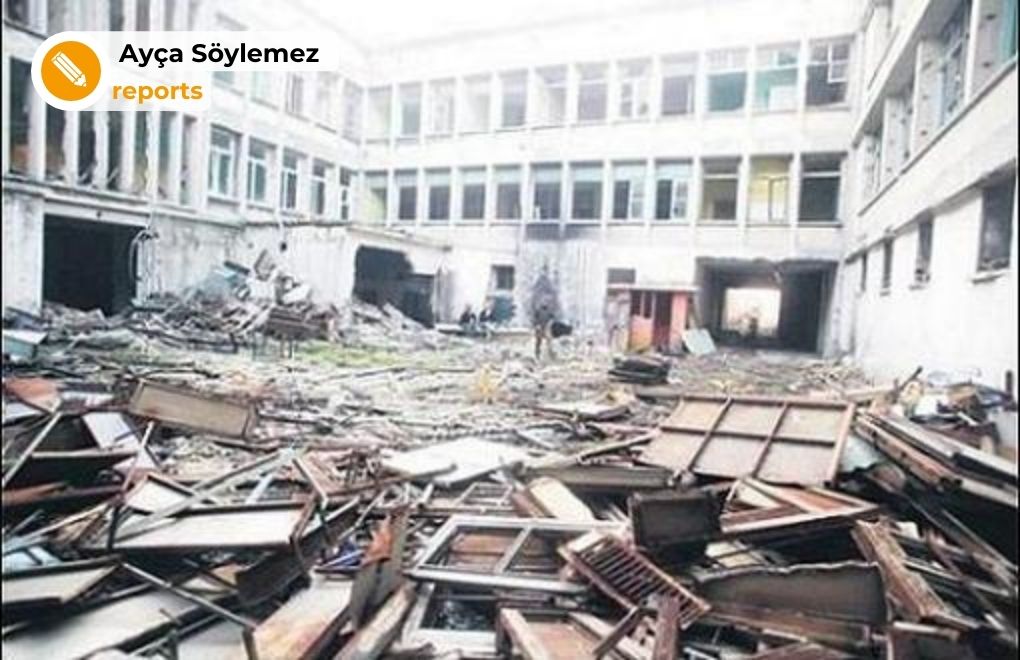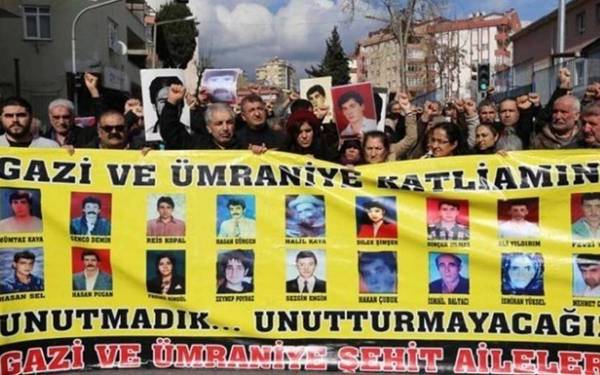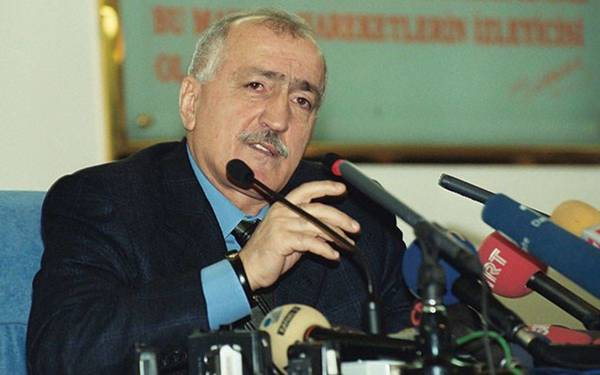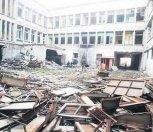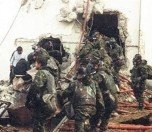Click to read the article in Turkish
The appeals court has given its ruling in the trial over the "Operation Return to Life" in İstanbul Ümraniye Prison on December 19, 2000. In the trial of 267 soldiers over the operation where the "Bora" and "Atmaca" (Hawk) military plans were carried out, the 1st Penal Chamber of the İstanbul Regional Court of Justice has upheld the acquittal of the defendants.
While the ruling of the appeals court consists of 28 pages, 26 pages of this ruling are allocated to the names of the defendants and involving parties. Writing only half-a-page decision, the appeals court has reiterated the ruling handed down by the local court in its ruling.
NOTE: On December 19-26, 2000, around 10,000 soldiers occupied 48 prisons to end 2-month hunger strikes and death fasts by hundreds of political prisoners. "Operation Return to Life", which left at least 31 prisoners and two soldiers dead, lasted a few hours in most prisons and up to 3 days in one prison. Eight prisoners were "disappeared" and at least 426 prisoners were wounded, according to reports.
Dozens of folders, null justification
Güçlü Sevimli, a lawyer for the aggrieved party, has spoken to bianet about the ruling of the appeals court. Sevimli has announced that they will apply to the Court of Cassation and appeal against this ruling which offers no justification for upholding the local court ruling.
The ruling of the appeals court dated September 21, 2021 was notified to lawyer Güçlü Sevimli yesterday (November 9).
"In a case file with dozens of folders and documents, no justification is given as to the acquittal. It has just accepted the ruling of the İstanbul Anadolu 6th High Criminal Court as it is," he has commented.
In its ruling, the court of appeals has also rejected the requests of the defendants' lawyers for overturning the ruling as to the crimes for which the local court said there was an expiry of statutory limitations.
'The appeals court didn't elaborate the file'
Güçlü Sevimli has said: "The court of appeals did not read this file, it did not show the necessary care. Frankly speaking, given the content of the case, we are not surprised at this. But in such a file, a ruling of reversal should have been given as to the procedure, if not as to the merits.
"There are two separate operation plans named 'Bora' and 'Atmaca' in the file. The İstanbul Anadolu 6th High Criminal Court did not take any action about these plans, it did not identify the ones mentioned in the plans or summoned them to depose, it did not even discuss it in its ruling.
"For instance, the Bakırköy 13th High Criminal Court, which held the trial [over the operation in] Bayrampaşa [Prison in İstanbul], accepted the requests about the operation plans and carried out an inquiry.
"The appeals court should have concluded that no sufficient inquiry had been carried out in this trial [over Ümraniye Prison]."
Requests for recusal, complaints inconclusive
Lawyer Güçlü Sevimli has recalled that they, as the lawyers of the aggrieved party, raised three requests for recusal of the local court board and submitted two complaints to the Council of Judges and Prosecutors (HSK); however, all these attempts remained inconclusive:
"It was very clear that the court held the trial only for show and aimed to cover up the incident; the court of appeals has just upheld this attitude. The local court ruling was invalid, so is that of the appeals court.
"While this case was still ongoing, several applications of the complainants to the European Court of Human Rights (ECtHR) ended in rulings of rights violations. In the trial that had continued for 15 years, the court constantly rejected our requests, it held the hearings by taking defendants' statements upon instruction and, afterwards, it gave a ruling of acquittal. As for the appeals court, it has maintained this unlawful practice."
Breaches of the CMK 'not a reason for reversal'
Lawyer Sevimli has underlined that even the procedures which were openly against the Law on Criminal Procedure (CMK) did not lay the ground for a ruling of reversal to be handed down by the appeals court:
"The interrogations of the defendants took place in the provinces where they were upon instruction. The court did not take their statements even via the Audio and Visual Information System (SEGBİS).
"In fact, as per Article 196 of the CMK, the defendants facing 5 years or more years in prison shall be heard before the court. If it does not happen, they shall attend the hearings via the SEGBİS system.
"But in this case, the defendants never appeared in court; we, as lawyers, could never ask questions to the defendants. But the appeals court ignored this situation, which is directly in breach of the CMK."
'It has upheld the ruling of the trial for show'
Güçlü Sevimli has noted that "the court of appeals, upholding the partial ruling of the local court, has maintained the trial for show":
"With this ruling, it has once again become clear that this trial has been only for show all along. I am not surprised as it is a political case; however, it should have been overturned at least legally.
"This is, of course, not the final ruling. Domestic remedies are available. The final ruling will be handed down by the Court of Cassation and we will keep on following it up. There are very clear breaches of the procedure. It must be overturned at least for this reason."
Will the deaths of five people remain 'unsolved'?
In the trial of the 399 prisoners over the deaths in prison, the İstanbul 5th High Criminal Court ruled that the prisoners on trial should be acquitted "as they were not proven guilty of the crime of killing." With the justified ruling, it was finalized that four prisoners and Gendarmerie Specialized Sergeant Nurettin Kurt were killed by the soldiers carrying out the operation.
However, as the trial of soldiers also ended in acquittal, the deaths of the deceased have now remained "unsolved".
Güçlü Sevimli has underlined that in the trial of the arrested and convicted people, the court ruled for their acquittal on the grounds that "they had not been proven guilty of the charged offense of killing":
"As for the trial of soldiers, the İstanbul 6th High Criminal Court gave a ruling of acquittal due to the lack of evidence. However, as the other ruling on prisoners is apparent, it should not be giving this ruling.
"The ruling has finalized that it was not done by prisoners; if the İstanbul Anadolu 6th High Criminal Court board is of the opinion that the soldiers on trial were not the perpetrators, it should have filed a criminal complaint for a new investigation to find the ones who committed the crime."
What happened?
During the week of December 19-26, 2000, around 10 thousand soldiers occupied 48 prisons to end two months of hunger strikes and death fasts by hundreds of political prisoners. The hunger strikers were aimed at protesting the state's plan to transfer its prisoners from large wards to the US-style "F-type" cells holding one to three prisoners.
Operation "Return to Life", which left at least 31 prisoners and two soldiers dead, lasted a few hours in most prisons and up to three days in one prison. Eight prisoners "disappeared" and at least 426 prisoners were wounded during the operations, according to reports.
In the trial over the operation in İstanbul Ümraniye Prison, the İstanbul Anadolu 6th High Criminal Court ruled on December 3, 2019 that the charges against the five defendants should drop as they had died.
The charges of "wilful injury" and "torture" against some of the 262 defendants dropped due to the expiry of statutory limitations.
Defendants were also acquitted of "deliberate killing in such a way that makes the perpetrator unidentifiable" on the ground of the lack of evidence that is "sufficient, not doubtful in any way, conclusive and convincing."
The court indicated that a ruling of acquittal was given by considering the defendants' statements of "We didn't do it." In fact, some of the soldiers accepted that they had opened fire. (AS/SD)





